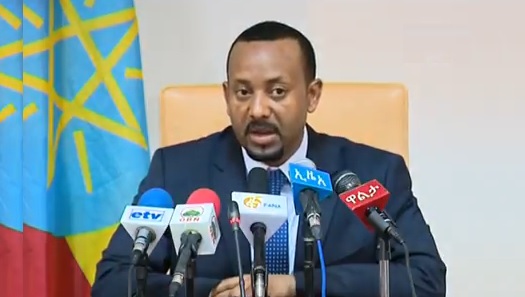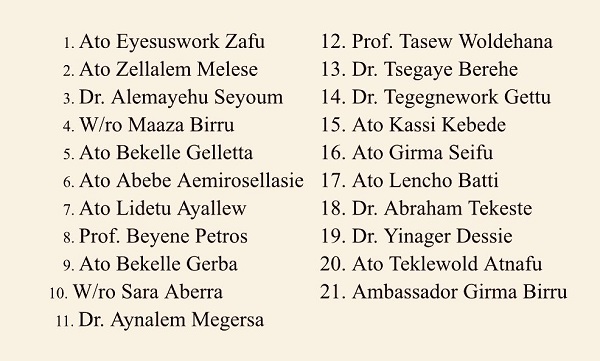
ADDIS ABABA (Semonegna)–Following the recent announcement by the Ethiopian government to open major state-owned and public enterprises for private and foreign investors in order to stimulate the country’s economic growth, Prime Minister Abiy Ahmed has set up an advisory council that will oversee the procedure of privatizing those companies.
Ato Fitsum Arega, the prime minister’s chief of staff, said that the 21-member advisory council will not only activate the the process of privatizing large state-owned enterprises & companies, but also ensure a complete transparency and accountability in the process. According to the Ethiopian News Agency (ENA), the advisory council has already started its task on Friday (August 4).
Privatization advisory council members

(1) Eyesuswork Zafu, (2) Zelalem Melese, (3) Dr. Alemayehu Seyoum (4) Meaza Biru, (5) Bekele Geleta, (6) Abebe Aemro-selassie, (7) Lidetu Ayallew, (8) Prof. Beyene Petros, (9) Bekele Gerba, (10) Sara Aberra, (11) Dr. Aynalem Megersa, (12) Prof. Tassew Woldehana, (13) Dr. Tsegaye Berhe, (14) Dr. Tegegnework Gettu, (15) Kassy Kebede, (16) Girma Seifu, (17) Lencho Batti, (18) Dr. Abarham Tekeste, (19) Dr. Yinager Dessie, (20) Teklewold Atnafu, and (21) Ambassador Girma Birru.
Privatizing state-owned enterprises: backstory
In its ordinary session meeting on 05 June 2018, the Executive Committee of the ruling regime EPRDF passed a decision to partially or fully transfer the shares of such state-owned companies as railway, industrial parks, hotels, sugar and manufacturing industries. In addition, the Executive Committee has decided to sell lesser portions of the stakes of some monopolized companies including the Ethiopian Airlines Enterprise, Ethio Telecom, as well as Ethiopian Shipping & Logistics Services Enterprise by still holding their major shares. The government’s move to open the country’s markets, once known a country with closed economy, has been hailed and considered as a green-light for a wider market liberalization.
The market liberalization was started by Hailemariam Desalegn, former prime minister who resigned in February 2018, when he proposed a partial market liberalization to the EPRDF’s 36-member Executive Committee so as to facilitated the country’s bid to the accession of the World Trade Organization (WTO). Even if Ethiopia submitted official request to join WTO in 2003 by establishing a Working Party on 10 February 2003 (with a plan of joining WTO in 2015), that plan has been delayed due to a requirement to open up the country’s economy by liberalizing state regulated telecoms and banking industries.
On the other hand, despite the double-digit growth and being Africa’s fastest-growing economy with a number of big infrastructure projects, experts claim that the economy is showing signs of slowing at a critical time. Further foreign exchange shortage has become a major impeding factor in recent years on the country’s economy and the prime minister said, in April, that foreign exchange shortage could last 15 to 20 years. Foreign investors and local businesses has been complaining that a shortage of foreign currencies like the US dollar are stifling the private sector.
Considering these factors, opening key economic sectors, including the state-owned Ethiopian Airlines and state-run telecoms, to local and international private investors is an important decision, as part of economic reforms, in order to the country’s rapid growth.
